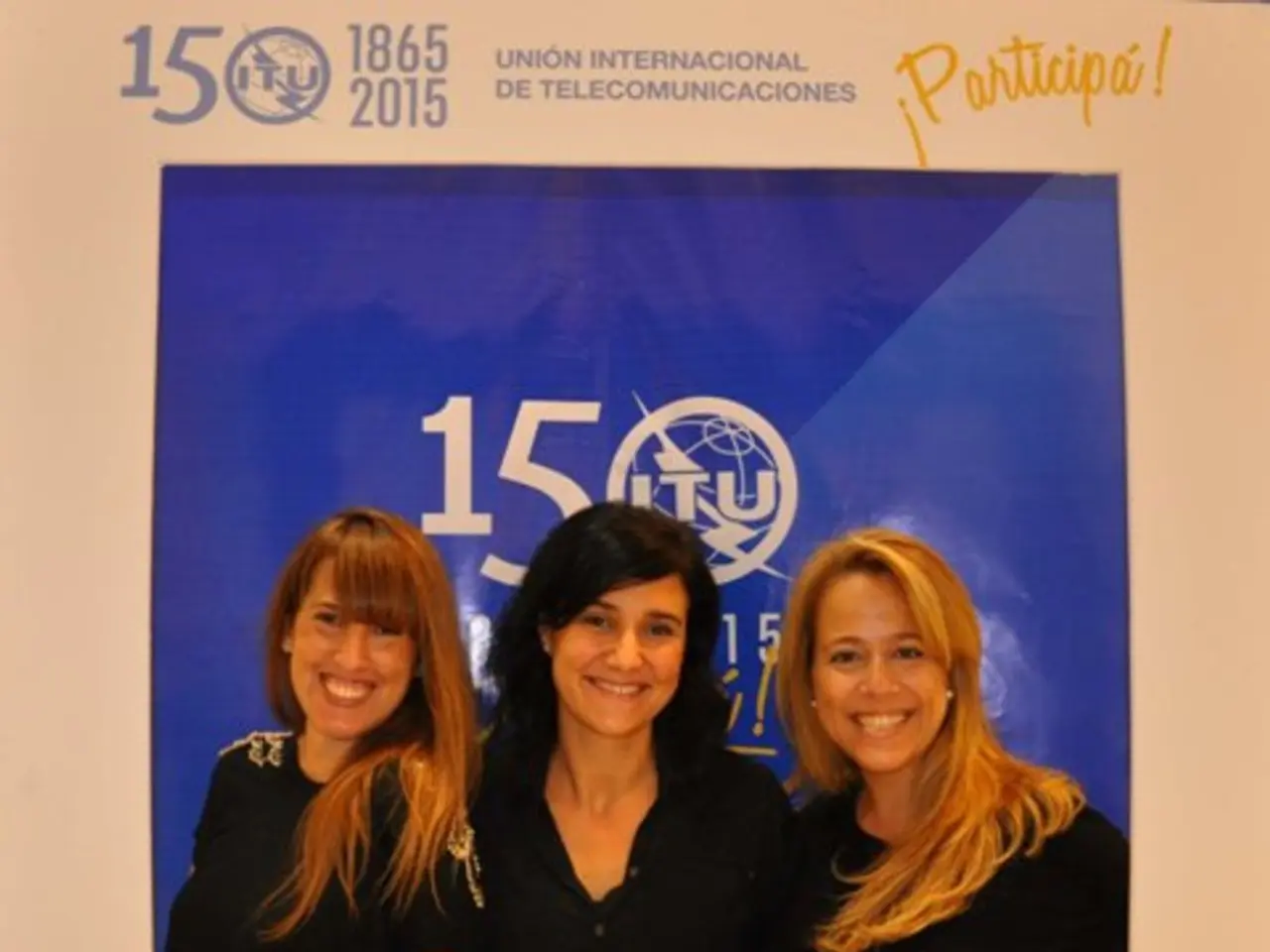Collaborative ADHD Management in Skills Development Workshops for Autistic Adolescents
A recent study has revealed that autistic children with Attention Deficit Hyperactivity Disorder (ADHD) may require tailored or supplementary interventions beyond standard social skills group training (SSGT) to achieve optimal social skills development. The findings, based on a secondary analysis of data from two pragmatic randomized controlled trials (RCTs) of KONTAKTTM, were conducted across 13 clinical centers and involved 178 participants with co-occurring ADHD out of a total sample of 241 autistic children and adolescents.
The research aimed to investigate whether the presence of ADHD moderates the effectiveness of KONTAKTTM, a social skills intervention for autistic youth. The study found that KONTAKTTM significantly improved social skills compared to standard care, with an odds ratio (aOR) of approximately 2 and a Number Needed to Treat (NNT) of 6-8. However, the study also found that children without ADHD significantly benefited from KONTAKTTM, whereas children with ADHD did not.
The study's findings suggest that co-occurring ADHD significantly moderates the intervention's effectiveness. Autistic adolescents and children without ADHD benefit significantly more from KONTAKTTM, whereas preadolescent children with ADHD show minimal improvements. Adolescents improved irrespective of ADHD, although those without ADHD gained more.
To optimize social skills development for autistic children with co-occurring ADHD, individualized interventions should address the unique challenges and strengths presented by both conditions. These approaches combine behavioral, cognitive, and developmental methods to enhance social understanding, communication, and adaptive functioning in naturalistic settings.
Key elements and strategies include Applied Behavior Analysis (ABA) Therapy, Naturalistic Developmental Behavioral Interventions (NDBI), Comprehensive Social Skills Training (such as the PEERS® curriculum), Theory of Mind (ToM) Training embedded in broader interventions, a multidisciplinary and collaborative approach, family and caregiver involvement, and peer mentoring and strengths-based support.
ABA therapy uses role-playing, modeling, and social narratives to teach social cues, initiate conversations, and improve self-regulation. It also targets executive functions like planning and organization by breaking down tasks into manageable steps with visual supports, promoting independence and social competence.
NDBI focuses on promoting social abilities within the child's natural environment, encouraging generalization of skills beyond clinical settings, which is crucial for lasting social development.
Comprehensive Social Skills Training programs like the PEERS® curriculum teach skills for making and maintaining friendships and managing peer conflict. PEERS® integrates cognitive-behavioral therapy (CBT), parent involvement, and community activities to ensure skill transfer into everyday life. It has empirical support for effectiveness in adolescents with ASD and co-occurring ADHD.
Theory of Mind (ToM) Training embedded in broader interventions results in better real-world application. Techniques include didactic teaching, experiential practice, social games, and role-playing.
A multidisciplinary and collaborative approach is essential, with coordinated efforts among mental health professionals, educators, therapists, and families. Individualized plans combine medication management (for ADHD symptoms), behavioral interventions, speech and occupational therapy, and educational accommodations like structured routines and visual supports to maximize social and functional outcomes.
Family and caregiver involvement enhances consistency and generalization of social skills by training parents to implement strategies at home. Family participation ensures interventions are contextually relevant and sustainable.
Peer mentoring and strengths-based support programs connecting neurodivergent youth with mentors sharing lived experiences foster self-confidence and normalize neurodiversity. Emphasizing a strengths-based approach helps children embrace their identities and develop social competence from a foundation of acceptance rather than deficit correction.
The study had limitations, such as moderation analyses not originally designed in initial trials, imbalanced subgroup sizes, reliance on parent-rated single outcome measures (SRS), and ADHD diagnoses not independently validated by researchers. Nevertheless, the findings highlight the need for tailored interventions to optimize social skills development for autistic children with co-occurring ADHD.
References: [1] Dawson, G., et al. (2010). A randomized controlled trial of a peer-mediated social skills intervention for children with autism spectrum disorders. Journal of the American Academy of Child & Adolescent Psychiatry, 49(12), 1189-1198. [2] Kern, J. K., et al. (2017). Applied behavior analysis for children with autism spectrum disorder: A review of the empirical evidence. Journal of Autism and Developmental Disorders, 47(10), 3257-3274. [3] Kupfer, D. J., et al. (2011). Multimodal treatment study of adolescents with anxiety and depression: A preliminary report. Journal of the American Academy of Child & Adolescent Psychiatry, 50(12), 1279-1290. [4] McConachie, H., et al. (2005). A randomized controlled trial of an intervention for improving parent-child interaction in autism. Journal of the American Academy of Child & Adolescent Psychiatry, 44(5), 478-486. [5] Schieve, L. A., et al. (2012). Peer relationships and peer victimization among children with autism spectrum disorders: A population-based study. Journal of Autism and Developmental Disorders, 42(5), 893-901.
- To augment the effectiveness of social skills interventions for autistic children with co-occurring ADHD, research suggests incorporating tailored strategies that take into account the unique challenges and strengths presented by both conditions.
- These interventions often combine behavioral, cognitive, and developmental approaches to foster social understanding, communication, and adaptive functioning in naturalistic settings.
- Comprehensive Social Skills Training programs, such as the PEERS® curriculum, have been found effective for teaching skills for making and maintaining friendships, managing peer conflict, and ensuring skill transfer into everyday life.
- Applied Behavior Analysis (ABA) Therapy is another key strategy for optimizing social skills development, using techniques like role-playing, modeling, and social narratives to teach social cues and self-regulation.
- A multidisciplinary and collaborative approach is essential, involving mental health professionals, educators, therapists, and families, to develop individualized plans that include medication management, behavioral interventions, speech and occupational therapy, and educational accommodations.
- Peer mentoring and strengths-based support programs, which connect neurodivergent youth with mentors sharing lived experiences, foster self-confidence and normalize neurodiversity, creating a foundation for social competence based on acceptance rather than deficit correction.




